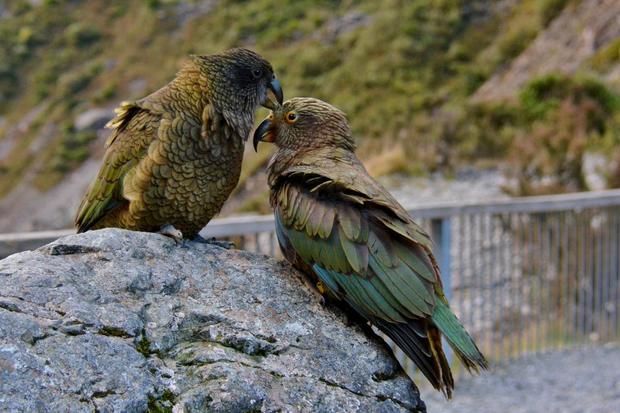Meet the New Zealand parrot whose "laughter" is contagious
Humans appear to be in good company: the kea parrot of New Zealand has become the first non-mammal to show signs of contagious “laughter.”
Kea parrots aren’t quite cracking each other up in mid-flight. More realistically, they could be described as showing signs of emotionally contagious vocalization. The playful parrot has a particular “play call” that, when heard by other kea parrots, prompts them to begin playing with each other, according to a study published Monday in the journal Current Biology.
The researchers suspect the parrot’s play call is a “positive emotional contagion” similar to what researchers have long observed in humans: for instance, glee inspires glee in preschool children and laughter inspires laughter among humans of all ages. (In humans, laughter has been associated with high levels of gamma waves and appears to engage the entire brain.)
They say the kea parrot is the first non-mammal known to exhibit this type of behavior.
The researchers conducted a test: after analyzing the kea parrot’s full vocal repertoire, they played a recording of the so-called “play call” for a group of kea parrots.
When the birds heard the calls, it led them to play more and play longer in comparison to other bird calls, which were used as controls. This held true for both juveniles and adults of the species.
“The fact that at least some of these birds started playing spontaneously when no other birds had been playing suggests that, similar to human laughter, it had an emotional effect on the birds that heard it, putting them in a playful state,” researcher Raoul Schwing of the Messerli Research Institute in Austria said in a statement.
The experiment supported researchers’ theory that play vocalizations “can act as a positive emotional contagion,” researchers wrote.
Other animals, like chimpanzees and rats, have also shown signs of emotionally contagious vocalization.




